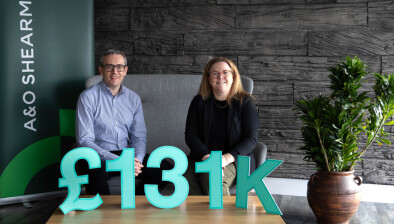People with mental health difficulties facing housing barriers

Aoife Kelly-Desmond
Mercy Law Resource Centre (MLRC) has called for changes to law and practice to tackle barriers that people with mental health difficulties face in accessing social housing and emergency accommodation.
Mary Butler, the minister of state for mental health and older people, formally launched the law centre’s new report at a conference this morning.
The Mental Health and Social Housing Supports report identifies a number of barriers experienced by those suffering mental health challenges and sets out a number of positive recommendations.
Though recommending improved staff training, changes to procedure and new secondary legislation, the report identifies insufficient supply as the “primary barrier” identified through the research.
“The removal of the other barriers outlined in this report will be of limited value if sufficient supply of appropriate accommodation for different mental health needs is not available,” it warns.
Aoife Kelly-Desmond, managing solicitor at MLRC, said: “The report reinforces the experience of MLRC — that people with mental health difficulties face particular barriers when seeking access to suitable social housing supports and emergency homeless accommodation.
“This report is centred on the lived experiences of people with mental health difficulties seeking to have their housing needs met. A recurring theme in the report is that where housing services are trained and resourced to understand and respond to different mental health needs people feel more supported and outcomes are improved. Conversely, rigid procedures, lack of staff training, stigma and silo-ing of services compound to create real barriers.
“Housing is a fundamental human need and lack of suitable housing can heighten mental health difficulties. One issue that highlights this problem is delayed hospital discharges — there are a number of examples in the report of people who were deemed clinically well being forced to remain in in-patient mental health treatment due to lack of housing, despite engaging extensively with housing services.
“In the report, MLRC identifies and examines those barriers and presents practical recommendations for changes to the law and administrative practices in relation to the provision of social housing and emergency homeless accommodation that, in our view, may alleviate some of these issues and contribute to a fairer, more compassionate approach to housing for all.”










